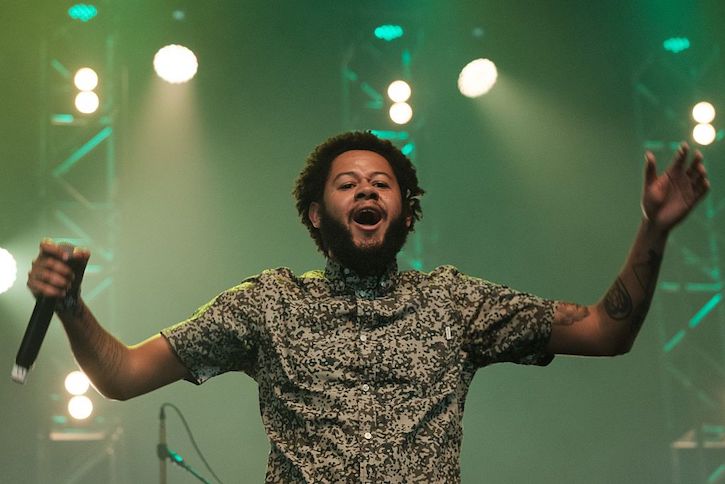It was the opening ceremony of the 2016 Summer Olympic Games when Brazil finally addressed its role in slavery and acknowledged those of the African diaspora’s contributions.
Data collected from historians has revealed that of the more than 9.5 million taken from their homes and enslaved during the Slave Trade, more than 4 million landed in Rio de Janeiro, Brazil. That’s nearly ten times more than the total number of enslaved people that arrived in the United States between the 16th and 19th centuries.
Brazil is home to more African heritage people than any country outside Africa, but it’s hardly ever considered a Black nation. That’s why an Afro-Brazilian rapper is making it his mission to make are that the country’s Black history is not lost and celebrated.
RELATED: What It Means To Be Black In Rio de Janeiro
Emicida, a Sao Paulo-born artist, has been on the music scene for nearly a decade but throughout 2020, has emerged as one of the country’s most influential cultural figures.
//www.instagram.com/embed.js
He’s using his art to right the “white-wrong” of Black history by remembering the lives of Black Brazilian academics, artists, and activists.
“If we’d been told about this story and these contributions at school, we’d have a radically different sense of who we are – and this would have produced a far better society than the one we’ve got today,” he told The Guardian.
He has a new documentary on Netflix titled, AmarElo, that dives into the struggles of inequality and racial tensions spewed directly from slavery.
Emicida said there’s an “unofficial system of apartheid’ happening in Brazil against Black and indigenous people before the 2018 election when Jair Bolsonaro, a far-right and nationalist politician, was elected president. In 2019, the organization Survival International named Bolsonaro “racist of the year,” citing his remarks and policies.
//www.instagram.com/embed.js
For Emicida, he told The Guardian that with the country’s current leaders, he’s worried the country’s hard-fought civil rights will be rolled back if no one speaks out against it.
“[Brazilian politics] was going down a very dangerous path. The way I see it, if we aren’t careful, there’s a big chance of someone like Bolsonaro being just the tip of the iceberg – and we have to talk about this.”
RELATED: Black Teenager Killed In Brazil Sparks ‘Black Lives Matter’ Protests
